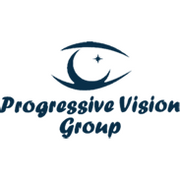
When children ask if they can make the switch to contact lenses, parents often consult their eye doctor to see if they are ready for the responsibility and maintenance required. Progressive Vision Group in High Point, NC, believes the transition to wearing contacts mostly depends on the child’s maturity level. While these alternatives to prescription glasses can benefit children in grade school and beyond, the age at which they begin to wear them may vary.
Signs Your Child Is Ready for Contact Lenses
Maturity
There are a variety of childhood  milestones that depend on readiness instead of age. Many kids are prepared to shave or wear makeup before their classmates, and the same is true for contact lenses. Some 8-year-olds may be prepared for the responsibility of cleaning and wearing lenses before a 15-year-old sibling.
milestones that depend on readiness instead of age. Many kids are prepared to shave or wear makeup before their classmates, and the same is true for contact lenses. Some 8-year-olds may be prepared for the responsibility of cleaning and wearing lenses before a 15-year-old sibling.
A child’s eyes can accommodate contacts from a young age, but many physicians recommend giving lenses to attentive and detail-oriented children by the time they reach the second or third grade. At this age, they will be dexterous enough to put in the lenses and responsible enough to take care of them.
Cleanliness
Older children who have trouble with personal hygiene, cleaning their room, or listening to parents and authority figures may need to wait longer to wear contacts. Since the lenses require daily cleaning and storage, your son or daughter should be able to follow the optometrist’s directions on how to wear them with few reminders at home. Whether they receive daily disposable lenses or a product that lasts for a month, they need to follow their doctor’s strict guidelines, including washing their hands thoroughly every time they handle their contacts and using the appropriate multipurpose solution and storage case.
What to Do If Your Child Is Not Ready
If your child insists on wearing contact lenses, but you aren’t convinced they are ready, make an appointment at a local eye care center. The optometrist will explain the pros and cons of wearing contacts and can even help your child pick out a new, stylish pair of prescription glasses. As they continue to visit regularly for exams, the doctor can re-evaluate their readiness for contact lenses.
Many children are excellent candidates for contacts. Your local optometrist can examine your son or daughter’s eyes and speak with them about their hygiene habits to determine whether they are ready to trade in their glasses. To discuss kids’ contact lenses, call Progressive Vision Group at (336) 841-2028. For information about innovative new products including gas-permeable (GP) lenses and multifocal lenses, visit their website. You can also browse vision care tips for the whole family by following the eye care center on Facebook.
About the Business
Have a question? Ask the experts!
Send your question

